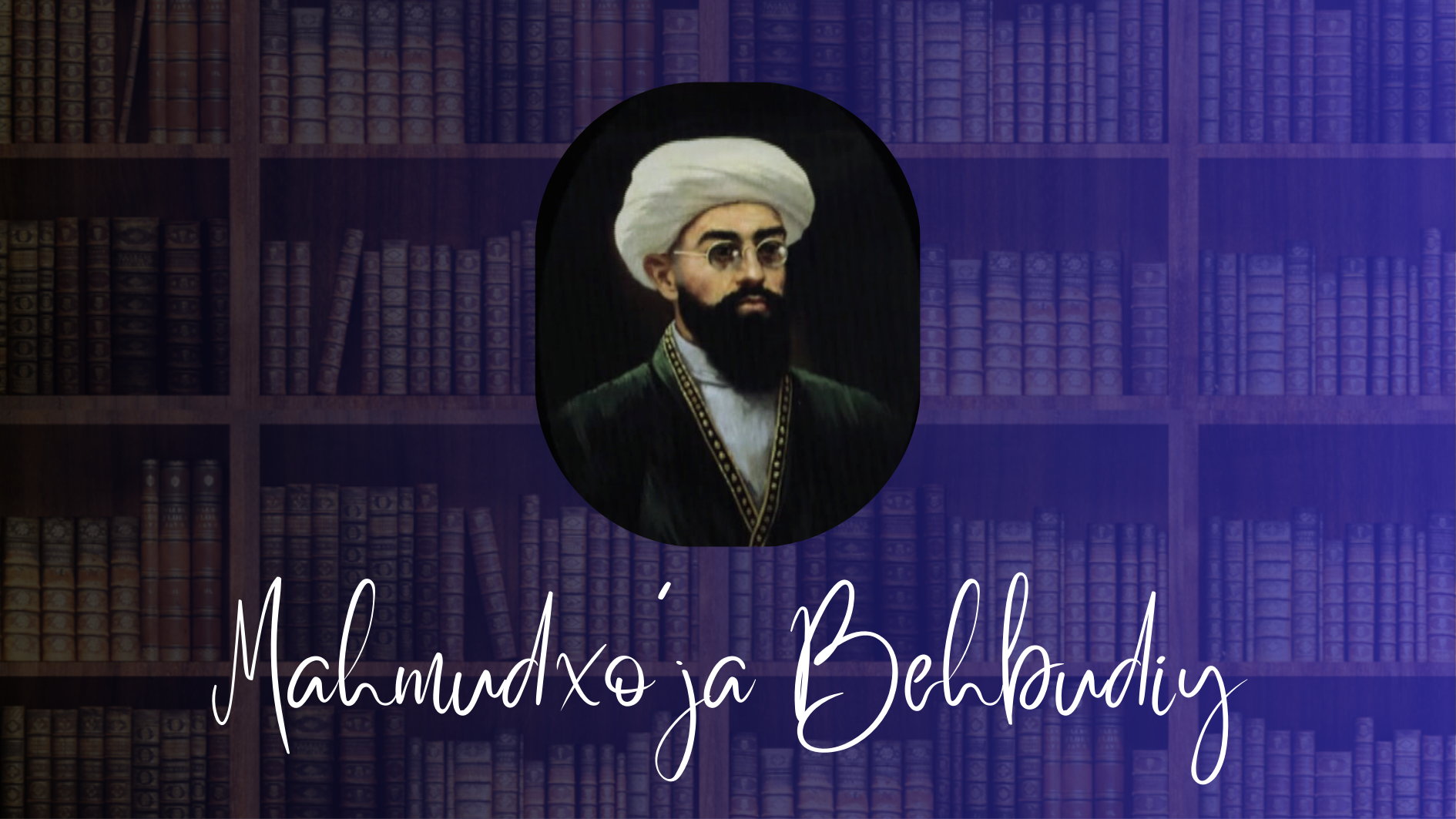It is dedicated to the 149th anniversary of the birth of Mahmudhoja Behbudi
Mahmudhoja Behbudi was born on January 19, 1875 in Samarkand in the family of a priest. He is a descendant of Ahmed Yassavi.
He first studied well in the Samarkand madrasa, and then in Bukhara. Through traditional education, and then by diligently and persistently working on himself, at the age of 18, he rose to the highest positions of Sharia - judge, mufti.
Behbudi visited Arabia, Egypt, and Turkey during his pilgrimage. During the trip, the idea of opening a new school (usuli jadid) gets stronger and he opens a new school near Samarkand. Behbudi gets to know the new Methodist schools in Kazan and Ufa, establishes contact with Tatar intellectuals.
He begins to compile textbooks for new schools. "Risolai asbobi savod" ("The Book of Literacy"), "Risolai jug'rofiai Umrani" ("Introduction to Population Geography"), "Muntahabi jug'rofiai yummim" ("Brief General Geography"), "Kitabat ul-atfol" ( It publishes books such as "Bolar Khati", "Practice of Islam", "History of Islam".
M. Behbudi paid great attention to the issue of the national language. His magazine "Oyna" alone did a great service in spreading enlightenment and culture. There were interesting articles and debates about the nation and its rights, history, language and literature issues, and the world situation. In particular, language issues were always in the focus of the editor's attention. Behbudi considered it necessary to know several languages for the development of the nation. For example, in August 1913, in the first issue of the magazine, there was an article entitled "Not two, but four languages are necessary." His drama "Padarkush" is considered the first dramatic work in Uzbek literature and is considered a mirror of its time.
In 2024, the 149th anniversary of the birth of Mahmudhoja Behbudi, a great scholar and public figure, who carried the torch of enlightenment high in the difficult times of our nation's history, will be widely celebrated. Scientific, creative, pedagogical activity and legacy of the thinker is of special importance. The hard-working and productive work of this great scholar, who actively participated in the Uzbek literature and art, socio-political processes of the 20th century, valiantly fought for the nation's enlightenment, freedom, and independence, took an eternal place in the pages of history and became a model school for generations.
After all, the establishment of the scholarship named after Mahmudhoja Behbudi is also a source of pride and pride in the hearts of the youth of our country.
